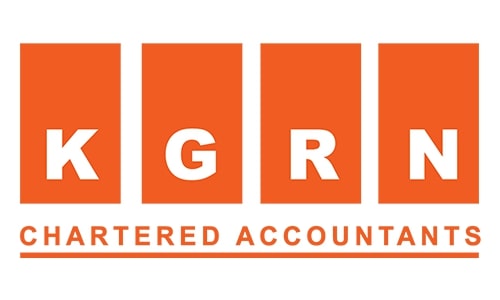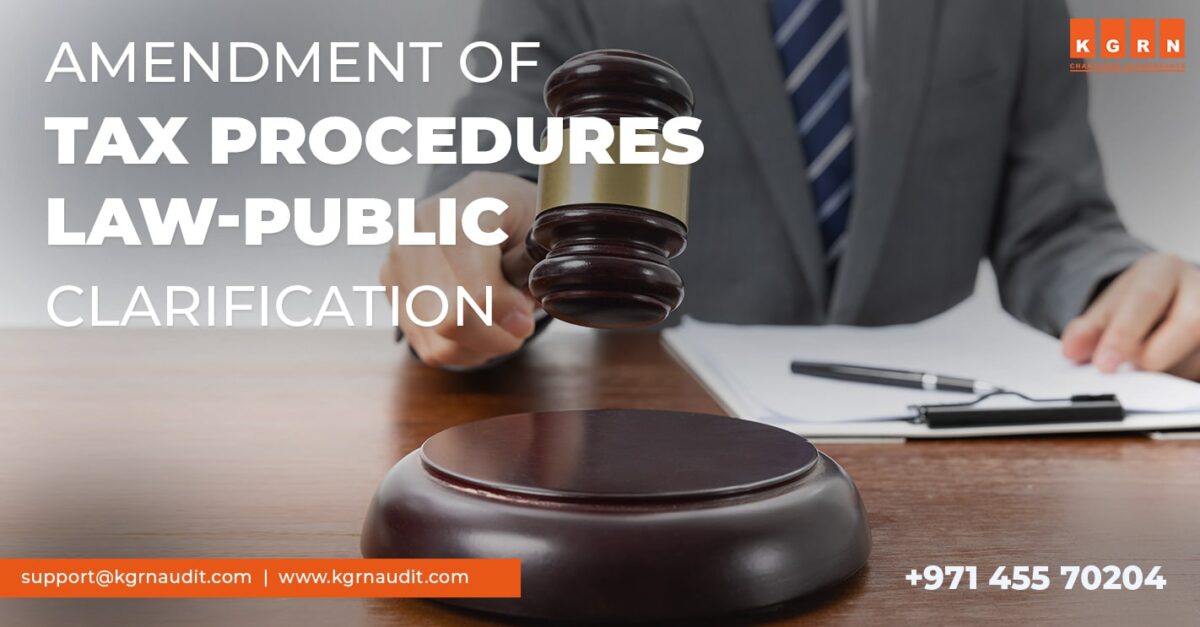Tax procedures in the UAE are regulated by the Federal Law No. 7 of 2017 on Tax Procedures. The Federal Decree-Law No. 28 of 2021 on the Amendment of Some Provisions of the Federal Law No. 7 of 2017 on Tax Procedures (“Tax Procedures Law”) has been issued, and is effective from 1 November 2021.
This Public Clarification is intended to inform persons of the changes in the Tax Procedures Law, in relation to three main changes:
- Mechanism and requirements for objection and appeal by taxpayers;
- Alternative mechanism for objection and appeal by Government entities; and
- Mechanism of waiving, refunding, and payment of administrative penalties (“Penalties”) as instalments.
Summary
The amendments to the Tax Procedures Law are effective from 1 November 2021, and mainly cover:
Mechanism and objection for requirements and appeal by taxpayers:
The tax procedures in the UAE include a mechanism to challenge decisions issued by the Federal Tax Authority (“FTA”). The decision dispute process starts with an application for reconsideration.
If a person still disagrees after the FTA has issued its decision in respect of a request for reconsideration, the person may lodge an objection with the Tax Disputes Resolution Committee(“TDRC”) and subsequently appealing before the competent court.
The changes in the Tax Procedures Law encompass two major aspects of change in relation to the procedures for objection and appeal, namely:
- Extension of the timelines within which a person may object or appeal against an FTA decision;
- Easement of requirements to pay Penalties, by removal of the requirement to pay such Penalties before access to TDRC and only requiring partial payment of Penalties before access to courts.
Alternative mechanism for objection and appeal by Government entities
As an exception to the general rules for objections and appeals to the TDRC and competent court, the Cabinet shall issue a Decision adopting an alternative mechanism of objection and appeal if the parties to the dispute are any of the Federal or local Government entities specified in that Cabinet Decision.
Pending the Cabinet Decision and its enforcement, the general objection and appeal rules will apply to objections and appeals of Federal and local Government entities concerning tax disputes.
Tax Compliance Dubai – Stay Compliant Easily!
Professional tax compliance services in Dubai to help businesses adhere to local tax laws, avoid penalties, and ensure smooth operations. Our services cover all aspects of compliance to keep your business running smoothly. Get in touch today to stay compliant easily!
Mechanism of payment and, refunding, waiving Penalties as instalments
Penalties may be levied where a person commits an offence. There may, however, be circumstances beyond the person’s control which
may need to be considered.
As per the Tax Procedures Law amendment, the FTA’s authority to waive Penalties was modified. As a result of the amendment, the previous
committee reviewing the excuses and evidences in respect to applications to reduce or waive Penalties no longer exists.
A new committee with the mandate to approve the payment of Penalties in instalments, and waiving or refunding penalties in full or in part, will be formed.
Detailed discussion
Timelines for objection and appeal
In order to grant taxpayers a wider window of opportunity to object to the FTA’s decisions regarding that taxpayer, the timelines for objections and appeals have been extended as following:
Application for reconsideration:
Based on the amendment, any person may submit the application for reconsideration within 40 business days from the date the person was notified of the FTA’s decision in connection with the person. Before the amendment, the person had to apply within 20 business days from the date the person was notified of the decision.
Issuing the reconsideration decision:
Based on the amendment, the FTA shall issue a decision on the reconsideration request within 40 business days from the date of receiving the application. Before the amendment, the FTA was bound to issue the decision within 20 business days.
Objecting to the TDRC:
Based on the amendment, the person shall submit the objection to the reconsideration decision within 40 business days from the date
of being notified of the reconsideration decision. Before the amendment, the person had 20 business days from the date the person was notified of the reconsideration decision to object against the reconsideration decision.
Appeal before the competent court:
Based on the amendment, the final decisions of disputes exceeding AED 100,000 are considered executory instruments if they were
not appealed, by the person or the FTA, before the competent court within 40 business days from the date of notification of the TDRC
decision. Before the amendment, the final decisions of the same value would have been deemed as executory instrument if they were not
appealed before the competent court within 20 business days from the date of notification of the TDRC decision.
Requirement to Settle Penalties – TDRC
Before the amendment, persons were required to pay all relevant outstanding taxes and Penalties related to the matter before being eligible to lodge an objection with the TDRC. From 1 November 2021, persons may submit an application to the TDRC despite not having paid the
Penalties imposed, as long as the full amount of tax has been settled, as well as all other conditions are met.
Requirement to Settle Penalties – Competent Court
Before the amendment, persons were required to pay all relevant outstanding taxes and Penalties before being eligible to lodge an objection with the TDRC. According to the amended Tax Procedures Law, as a prerequisite to appealing before the competent court, the person shall submit, among others, proof that:
a. The full amount of tax, as determined by the decision being challenged (i.e. the amount of tax as determined by the decision of the TDRC
or the competent court issuing the decision that the person is now challenging before the higher competent court), was paid.
The amount of tax will, therefore, differ where the decision of the courts on the matter change. Hence, where the amount of tax as decided by the TDRC or the competent court increases as per the decision of the following levels, the person is required to pay the difference before being eligible to take the matter to the higher competent court; and
b. At least 50% of the Penalties, as determined by the decision being challenged (i.e. the amount of Penalty as determined by the decision of the TDRC or the competent court issuing the decision that the person is now challenging before the higher competent court), was settled. The amount of Penalties, just like the tax amount, will differ where the decision of the TDRC or the courts on the matter change.
Hence, where the amount of Penalties as decided by the TDRC or the competent court is increased by the higher competent court, the person is required to pay 50% of the increase before being eligible to proceed to the next level.
Penalties can be paid directly to the FTA through the person’s e-Services account. Alternatively, the person may provide an approved bank guarantee in favor of the FTA. The FTA will be publishing detailed guidance relating to the bank guarantee process at a later date.
In case any of the above listed requirements is not met, the appeal will not be accepted.
Penalty installment, waiver, and refund
As per the Tax Procedures Law amendment, the Cabinet will issue a decision detailing the controls and procedures based on which a new committee may approve payment of Penalties by instalments, or full or partial waiver or refund.
This new committee will be established and chaired by His Highness the Chairman of the FTA or his deputy, and will include two Board Members of the FTA.
Theّ new committee may issue a decision
- approving the Penalties to be made in instalments;
- to waive Penalties in full or part; or
- to refund Penalties in full or part.
Consequently, any requests that are received by the FTA to waive Penalties or to pay Penalties in instalments, will only be processed once the
Cabinet Decision stating the controls and procedures is enacted. Further information on such controls and procedures will be issued by the FTA in due course.
This Public Clarification issued by the FTA is meant to clarify certain aspects related to the implementation of the Federal Law No. 7 of 2017 on Tax Procedures and its Executive Regulation. This Public Clarification states the position of the FTA and neither amends nor seeks to amend any provision of the aforementioned legislation. Therefore, it is effective as of the date of implementation of the relevant legislation, unless stated otherwise.
In this clarification, Federal Decree-Law No. 28 of 2021 on Tax Procedures is referred to as “Tax Procedures Law”.
- Article 27(1) of the Tax Procedures Law states that Any Person may submit a request to the Authority to reconsider any decision, or part thereof, it issued in connection to him, provided that the request includes reasons and meets the prescribed conditions, within 40 business days from the date he was notified of the decision.
- Article 29 of the Tax Procedures Law states that the Committee shall have jurisdiction to:
1. decide in respect of objections submitted regarding the Authority’s decisions on applications for reconsideration.
2. decide in respect of applications for reconsideration that were submitted to the Authority and yet, the Authority has not made a decision in their regard according to the provisions of this Law.
3. any other jurisdictions entrusted to the Committee by the Cabinet. - Article 33(1) of the Tax Procedures Law states that without prejudice to the provisions of Article 32 and Article 32 (bis) of this Law, the Authority and the person, as the case may be, may appeal the Committee’s decision before the Competent Court within 40 business days from the date the Authority or the person, as the case may be, was notified of the Committee’s decision, in the following two cases:
a. Appealing the Committee’s decision in whole or in part.
b. Non-issuance of a decision by the Committee regarding an objection submitted to it in accordance with the provisions of this Law. - Article 32(bis) of the Tax Procedure Law states that as an exception to the provisions of Articles 29, 30, 31, 32 and 33 of this Law, the Cabinet shall – according to a suggestion by the Minister – issue a decision adopting an alternative mechanism of objection and appeal if the parties to the dispute are any of the federal or local government entities specified in that decision. Pending the Cabinet’s decision and its enforcement, the provisions of this Law shall apply to the objection or appeal of federal and local government entities concerning tax disputes.
- Article 25 of the Tax Procedures Law states that the Authority shall issue an Administrative Penalties Assessment for a person and notify him within 5 business days for any of the following violations:
a. The failure of the person conducting business to keep the required records and other information specified in this Law and the Tax Law.
b. The failure of the person conducting business to submit the data, records and documents related to tax in Arabic to the Authority when requested.
c. The failure of the taxable person to submit a registration application within the timeframe specified in the Tax Law.
d. The failure of the registrant to submit a deregistration application within the timeframe specified in the Tax Law.
e. The failure of the Registrant to inform the Authority of any circumstance that requires the amendment of the information pertaining to his tax record kept by the Authority.
f. The failure of the person appointed as a Legal Representative for the taxable person to inform the Authority of his appointment within the specified timeframe, in which case, the penalties will be due from the Legal Representative’s own funds.
g. The failure of the person appointed as a Legal Representative for the taxable Person to file a tax return within the specified timeframe, in which case the penalties will be due from the Legal Representative’s own funds.
h. The failure of the registrant to submit the tax return within the timeframe specified in the Tax Law.
i. The failure of the taxable person to settle the payable tax stated in the submitted tax return or tax
assessment he was notified of, within the timeframe specified in the Tax Law.
j. The submittal of an incorrect tax return by the registrant.
k. The voluntarily disclosure by the person of errors occurring in the tax return, tax assessment or refund application pursuant to Article 10 (1) and (2) of this Law.
l. The failure of the taxable person to voluntarily disclose errors in the tax return, tax assessment or refund application pursuant to Article 10 (1) and (2) of this Law before being notified that he will be subject to a tax audit.
m. The failure of the person conducting business to facilitate the work of the tax auditor in violation of the provisions of Article 21 of this Law.
n. The failure of the registrant to calculate tax on behalf of another person when the registered taxable person is obligated to do so under the tax Law.
o. Any other violation for which a Cabinet Decision is issued - Article 27(2) of the Tax Procedures Law states that the Authority shall review the reconsideration request and issue a decision including reasons within 40 business days from the date of receiving the application, and inform the applicant of its decision within 5 business days from the date of issuance of the decision.
- Article 30(1) of the Tax Procedures Law states that an objection to the Authority’s decision in respect to a
reconsideration request shall be submitted within 40 business days from the date of being notified of the Authority’s decision. - Article 32(2) of the Tax Procedures Law states that the final decisions of disputes exceeding 100,000 Dirhams
shall be deemed as executory instruments if they were not appealed before the Competent Court within 40 business days from the date of notification of the outcome of the objection. - Article 30(2) of the Tax Procedures Law states that an objection submitted to the Committee shall not be admissible in the following instances:
a. If a reconsideration request has not been previously submitted to the Authority.
b. If the tax in connection with the objection has not been settled.
c. If the objection is not submitted within the period specified in Clause 1 of this Article. - Article 33(2) of the Tax Procedures Law states that the Competent Court shall rule the appeal against the Authority as inadmissible in the following instances:
a. Existence of a case of inadmissibility of an objection by the Committee, as mentioned in Clause 2 of Article 30 of this Law.
b. Failure of the person to provide proof of payment of tax to the Authority in accordance with the decision of the Committee, or as ruled by the courts, as the case may be.
c. Failure of the person to provide proof of payment of no less than 50% of the amount of the administrative
penalties as decided by the Committee, or as ruled by the court, as the case may be, either through cash payment to the Authority or by providing an approved bank guarantee in favor of the Authority. - Article 46 of the Tax Procedures Law states that if the Authority imposes or collects an Administrative Penalty from any person for violating the provisions of this Law or the Tax Law, the Committee provided for in the second paragraph of this Article may, according to the presentation of the Director General, issue a decision approving the payment by instalments of the penalty amount or totally or partially waiving or refunding it, pursuant to the controls and procedures issued in a decision by Cabinet according to a suggestion by the Minister. The Chairman of the Board of the Authority shall issue a decision forming the Committee provided for in the first paragraph of this Article, to be chaired by him or his deputy, and the membership of two Board members. The decision issued forming the Committee shall set out its bylaws and the manner of holding its meetings.
If you have any queries or need more clarification, Please contact us immediately







